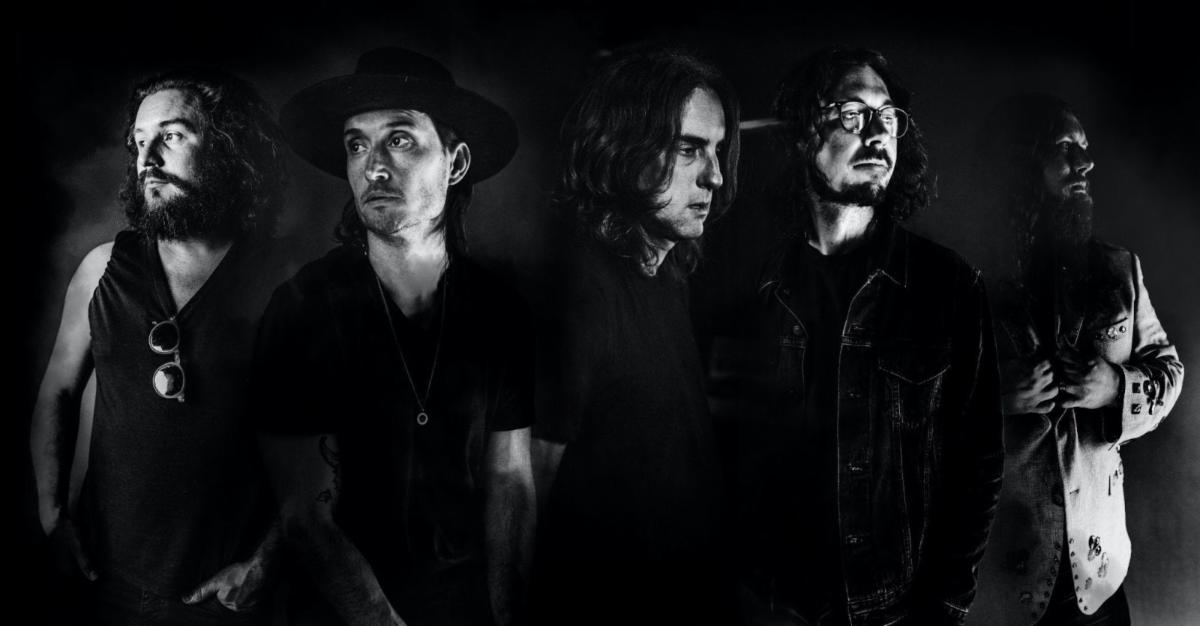Fuck Cameron Crowe. For what Chuck Klosterman wrote about Lloyd Dobbler, for Cuba Gooding Jr.'s Oscar (over William H. Macy?!), for “You had me at 'hello'” and its rom-com legacy, for the banal trope of the manic pixie dream girl, for Aloha—and for burying Ruckus in the unholy mess of Elizabethtown.
The 2005 tragicomedy is a forgettable, clichéd indulgence in false Americana, and what Roger Ebert called “the most unrelenting meet-cute in movie history.” Its protagonist is a sneaker designer, its love interest a mystical flight attendant, and its setting an appropriation of the American South that presents itself as outside Louisville but instead comes across as a Thomas Kincaid meets Chuck Lorre version of Kentucky, itself an argument for why the South still hates Yankees. For the love of Ronnie Van Zant, in the film's only good scene, the fictional band Ruckus plays the good goddamn out of “Freebird.” Its happy ending is such contrived, associate-producer-note-driven nonsense, one could argue American cinema died in its closing credits as art moved fully into a tragic state of artifice.
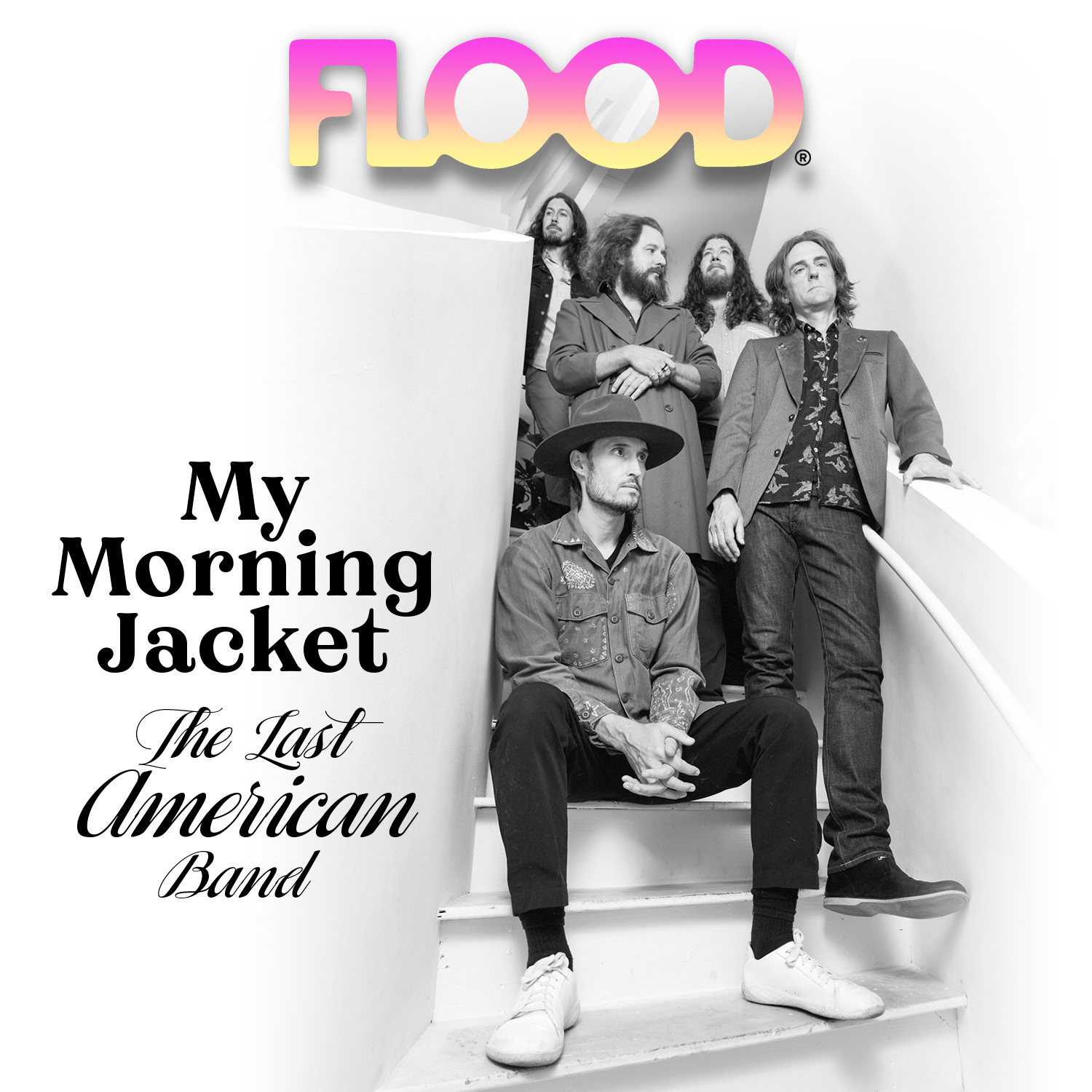
There’s an interesting movie somewhere in Elizabethtown, but it has nothing to do with Phil Knight avatars, a tap-dancing Susan Sarandon, or Hollywood dioramas of the American South. It's the story of Ruckus, the band that “opened for Lynyrd Skynyrd...almost opened for 'em. It's really a long story.” It's a story about the South's cultural endurance, its reckoning with its violent heritage, its trauma, through the lens of a band whose legacy was unwritten, ultimately reduced to a reunion gig at the memorial for a man who had likely never heard of them, who had himself escaped the South for California.
But that story remains untold. There are copyright issues, I imagine. So let's instead talk about My Morning Jacket, the band that played Ruckus, a band that broke through in the waning days of grunge playing uncompromisingly singular Southern folk-rock, that built its mythology on endless sets and a rabid, loyal community of fans. A band in a time where the very idea of a band is seemingly an anachronism.
“I am flying high over Tupelo, Mississippi, with America's hottest band…and we are all about to die.”
No band feature can ever live up to that opening line. “Fuck Cameron Crowe” is a literary dumpster fire next to the Lester Bangs-inspired poetry of Almost Famous' fictional Rolling Stone feature on Stillwater, “a mid-level band struggling with its limitations in the harsh face of stardom.”
My creative framework here is a little muddled, but bear with me. The My Morning Jacket feature is coming. It's buried—like Ruckus. And here's where fiction and fact get blurred, where my thesis and reality are at a guitar-armed standoff. In my version of Elizabethtown, Ruckus' performance—a wild, unfettered “Freebird” whose climax is bolstered by fire and soaked in the resulting sprinkler system going off—is the beginning of the band's surgent rise. In reality, it marked a turning point for MMJ. Following the critical success of 2003's It Still Moves and the departure of Danny Cash and Johnny Quaid (replaced by Carl Broemel and Bo Koster in joining Jim James, Tom Blankenship, and Patrick Hallahan), 2005 saw the band enter the cultural zeitgeist and a new era of prominence. The appearance in Crowe's farce and on Saturday Night Live, the universal acclaim for Z and the live album Okonokos, and their rain-drenched four-hour storied performance at Bonnaroo solidified MMJ as not just a band, but a force in American music—one with legacy, longevity, and ethos.
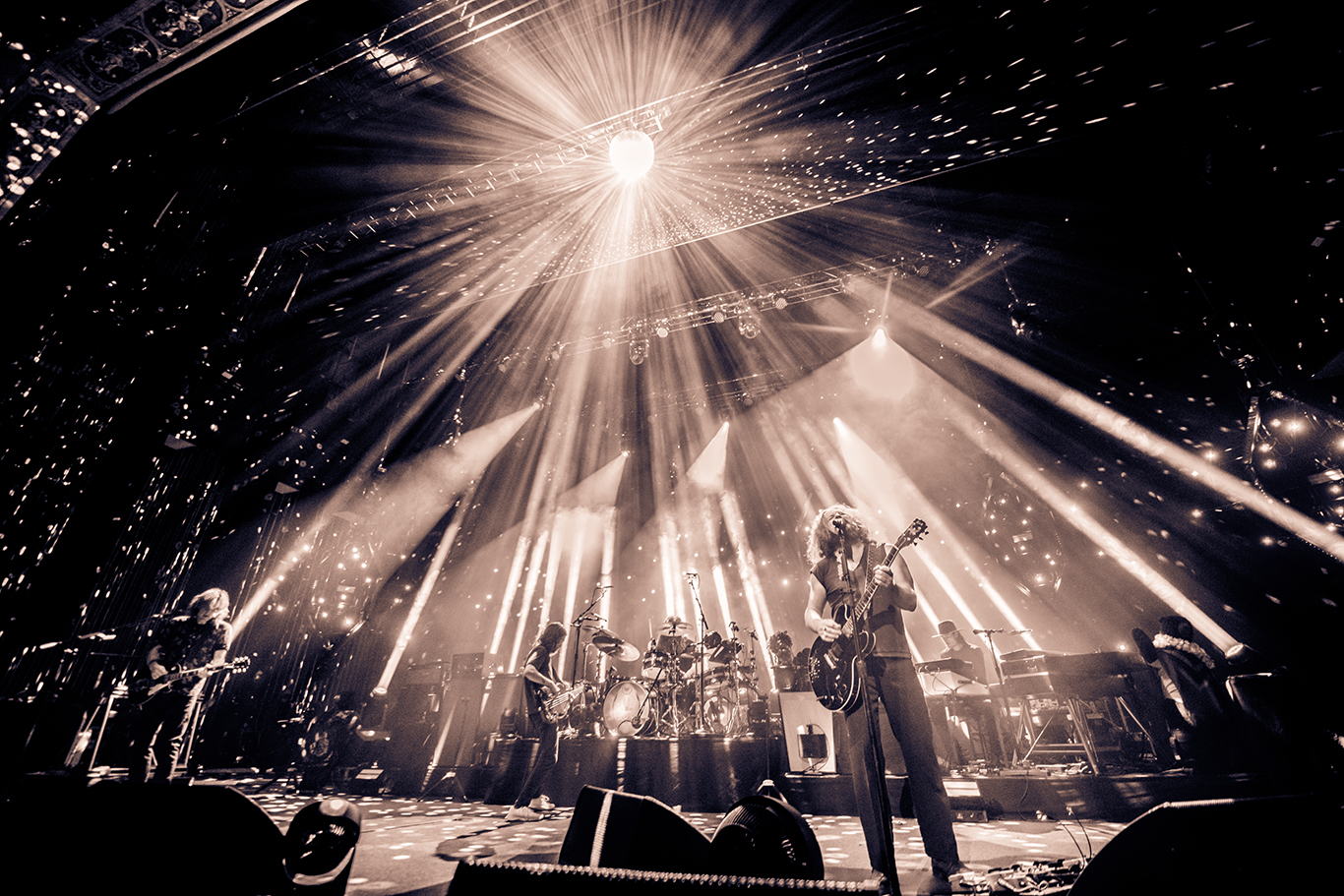
Photo by Dave Vann
Can't you see it? Band that never opened for Skynyrd reunites for a performance marred by rain and fire, decides to give it one more try and ends up discovering a sound that acquires not just fandom and praise, but is the soundtrack to burgeoning mythology, culminating in an epic four-hour performance in the rain at what is arguably the South's biggest music and cultural exhibition.
Some 13 years after that seminal performance in Manchester, Tennessee, and nearly a quarter-century into the story of My Morning Jacket, the band plays on. What's most impressive about MMJ is not their ever-evolving sound, grounded in all things truly of the American South—rock, jazz, country, folk—but rather that they've built a community around themselves. In speaking with James, Broemel, and Koster, one is left with the sense that MMJ is simply five friends who genuinely love one another creating music for an eclectic fanbase that genuinely loves them. There’s no pretense, no Us Magazine drama. None of MMJ will be appearing on the next season of The Voice.
My Morning Jacket is a band, maybe the last band, in these cynical end times.

When I talk to MMJ they’re preparing to hit the road for the first time since four shows in Forest Hills in 2019, the pandemic having pressed pause on all of our lives. The excitement in being able to play together again, to play for fans, is palpable in frontman James' voice.
“As you play old songs, all these memories rush back and it's really amazing,” he says. “We're just hoping that everybody can come to the shows and be safe, and that we can stay safe. And yes, it's such a crazy time—the future isn’t promised, so you have to enjoy each day as it comes and hope that we can maintain, and that live music can keep happening.”
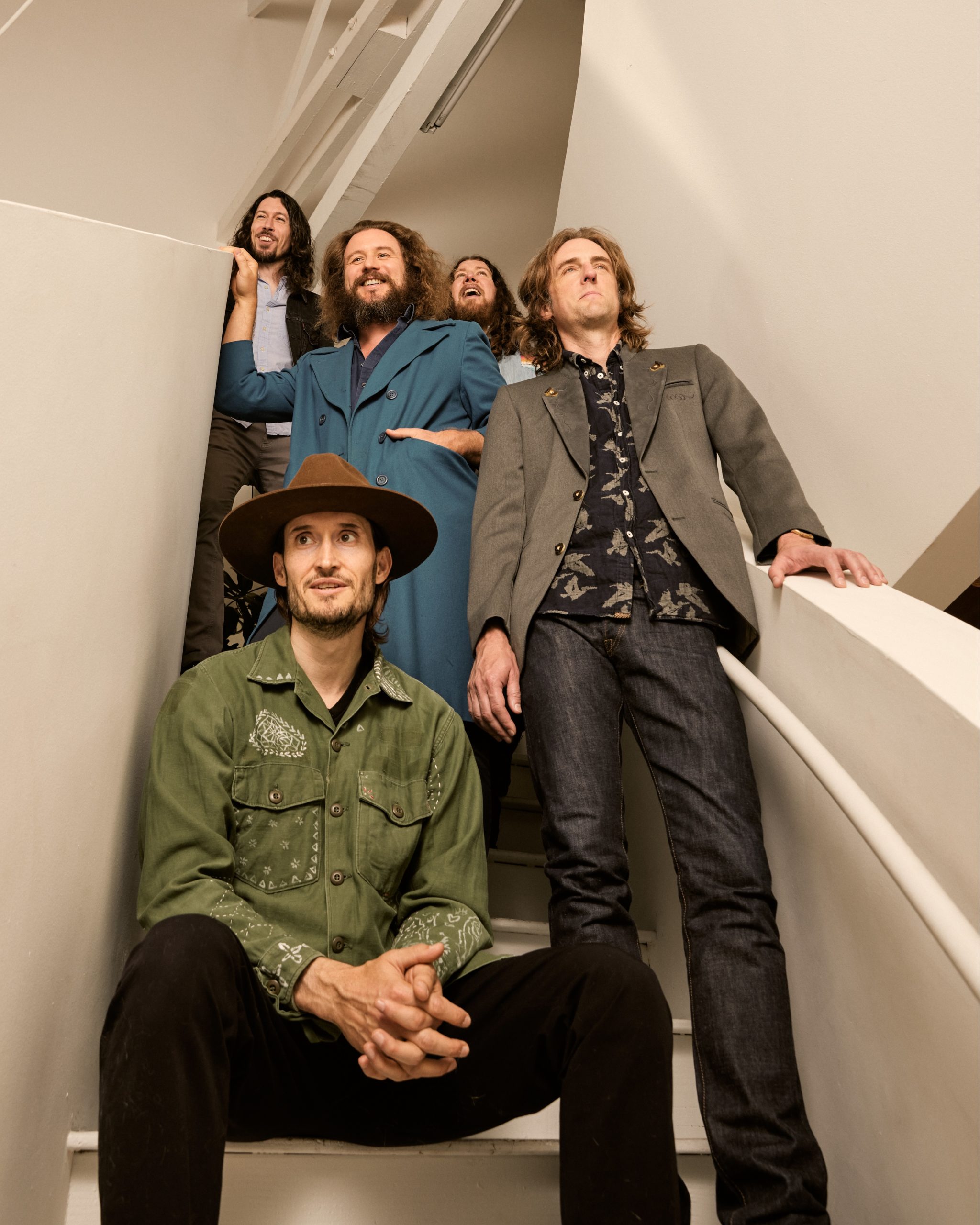
Photo by Austin Nelson
Koster is more conflicted about returning to the road: “It's equal parts apprehension and a despondent, worrying feeling, and equal parts excitement and anticipation of connecting with my friends and fans and playing music for people. You have this anticipatory dread before you do something that's high-pressure. And then as soon as I get there, it flips and then I have zero fear. It's all love and excitement and confidence. Even getting on a plane and being around people that clearly don't want to wear a mask and have negative energy, and you're just looking at America and you're like, 'What have we come to? What the fuck is wrong with us?' And then we're all worried about getting COVID because if we get it the tour could get cancelled, which would just be a bummer for literally everyone. And so it's a weird time, it's a weird feeling.”
Live music's absence during COVID has denied us the collective experience that bonds so many. In its ethereal truth, in sweaty clubs or giant stadiums, in feeling for a song what a stranger feels, let alone thousands of strangers, is—as James puts it—transcendent: “You can't recreate the joy of really being with people, with music—you can't recreate that.”
“You can't recreate the joy of really being with people, with music—you can't recreate that.” — Jim James
Broemel is similarly existential in his response. “What's interesting about the record is that it was our last creation before the pandemic, and there will never be a record that's not informed by this moment. Literally right when a tornado destroyed East Nashville and some other counties out here, and the pandemic was approaching, that's when we wrapped up recording. And the frustrating thing is that we had already taken a break before this. So as we were before the pandemic, we were actually revving up the engine and getting going and playing and being like, 'We love this, this is awesome, this is how we're having such a great time.' And then we had to put the brakes on again. I think we're dying to get out there and play just because of that.
“And I'm apprehensive,” he adds, “but I'm also optimistic—it seems like going out and playing shows is what we need to do. And we'll see how it goes, and hopefully it's the right decision. We're just like everyone else, bumbling through this every week and sort of feeling like, ‘OK, well, what are we supposed to do? What's cool and what's not?' It's very meaningful, just to be able to be a musician again, and pretend like you're just at someone's house playing music for the fun of it. Because that's where it all began. There's the pressure of the tour and the album and all that stuff. But it's still fun to just get together and mess around, kind of like you did when you were a teenager.”

Photo by Jay Blakesberg
I wonder aloud how that experience has evolved over time, how a band's 23-year relationship with its fans ebbs and flows.
“I was just always so glad that anybody wants to come see us,” James replies. “I don't know if it sounds weird or not, but I don't really think about those kinds of things. I'm just so glad to see the way the faces are filled with joy, or screaming, or sadness, or tears, or emotion. I feel like one of the things I love about music is the soul aspect of it and transcending the body, transcending this vessel. And then after the music is done, I return to my body and I feel like I experienced it as a performer and as an audience member, so I try to imagine that, or hope that's happening for the audience to know and kind of feel that soul.”

Like Broemel says, My Morning Jacket had finished recording the new self-titled album when the pandemic hit. The result is a sprawling, eclectic release that shows a band that’s more sure of itself than ever. The first few listens through, I tried to find the influences, the “sounds like,” the musical reference points that help a mid-level music writer come to terms with his own limitations in describing an album. I heard Neil Young, I heard Crazy Horse. I heard Steve Miller. I heard Steely Dan. And I heard another band, whose name escaped me until my third run through “The Devil's in the Details.” That band was My Morning Jacket.
“There's the pressure of the tour and the album and all that stuff. But it's still fun to just get together and mess around, kind of like you did when you were a teenager.” — Carl Broemel
It’s the true mark of a band's imprint on the culture when we can stop comparing them to other bands, and simply give them a place within the pantheon. MMJ has hit that point, even if they don't realize it yet. As Koster says, “When somebody comes out, and it feels like their music is inspired, versus plagiarized, it really pops out to me. And I think that's what we're hoping to do because we're kind of in-between—we have our influences, too, that come out in our music. But I think we're always trying to find our original voice as a band. I'm really proud of the record and proud of a lot of the lyrical content. We've had throughlines and broad messages in our records before, but I never thought it was as coherent as this one—there's a lot of social commentary and observational lyrics that I think is new for Jim. And I think it just shows that he continues to grow as a songwriter, and he's not retreading tricks and themes and stuff that he's done in the past.”
Another seminal moment in a band's journey to where MMJ is now is a sense of humility. I've reluctantly spent enough of my life in rooms with literary, musical, and entertainment celebrities to know there’s no absence of hubris, no lack of assholes. Humility is rare. But when you come across it, it feels singular, as if reserved for artists whose authenticity transcends celebrity. In my time with My Morning Jacket, in each conversation, I felt like a person. I'm not naive—I know that they roll through these interviews by the dozen. But there's an organic truth to MMJ, evident in conversation with James, Broemel, and Koster, that suggests they’re people and not avatars for a label-constructed version of a band.
Nowhere was this more apparent than when Koster asked what I thought of “Devils in the Details.” “I think I love that song the most,” he shares. “I wanted that to be the first song everybody heard off the record. I was just curious what you thought—and if you didn't like it, you can tell me, I don't care.”
“I wrote down two titles when listening to the album,” I tell him, ‘Love, Love, Love’ and ‘The Devils in the Details.’”
“And there's something weirdly—I don't want to say, like, ‘hopeful’—about “The Devils in the Details,” he replies. “There's something also a little bit melancholy about 'Love, Love, Love' to me. They're all on the same record. It's like I'm observing all these fucked-up things. This existential crisis...it's like the social construct being in jeopardy and romanticism being dead, all the themes that we've hit in our conversations. Yet, I still feel love in my heart. And I know that's the way through, and somehow learning to get along and help each other and band together. I think those two songs really book in the record, thematically too.”
“There's a lot of social commentary and observational lyrics that I think is new for Jim. And I think it just shows that he continues to grow as a songwriter, and he's not retreading tricks and themes and stuff that he's done in the past.” — Bo Koster
That's not an exchange born of hubris, nor the need to attain or acquire or be on the cover of Rolling Stone. That's just some dude who digs his band wondering if someone else digs the tunes he does. At its most elemental, that’s what music is all about. And without a hint of artifice, that's what My Morning Jacket is all about. Five men in a rock n' roll band…

A sense of authenticity has always been what’s drawn me to art—I'm taken to entities that feel like they’re born of humanity, of real experience, of people, and not industry or constructs. And when I posit that My Morning Jacket is the last American band, the last of a lineage that passed through The Band, it comes from that place, that cynical wonder as to whether we’ve reached a crossroads culturally where art is branded content, and not inspiration or catharsis or breath. As a collective audience, we’ve become complacent in accepting art that’s made for an imagined consumer, and that model has left a hole in artistic communities, nowhere more apparent than in music. I honestly can't name a band, new in the past decade, that I feel any sort of connection to. Maybe that's generational disconnect, or a world where the Jenners exist, or just something that happens to us all, as James suggests: “There's a phenomenon that happens—I think with so many people, whatever was big during their high school or college years, or their formative years, is what becomes classic.”
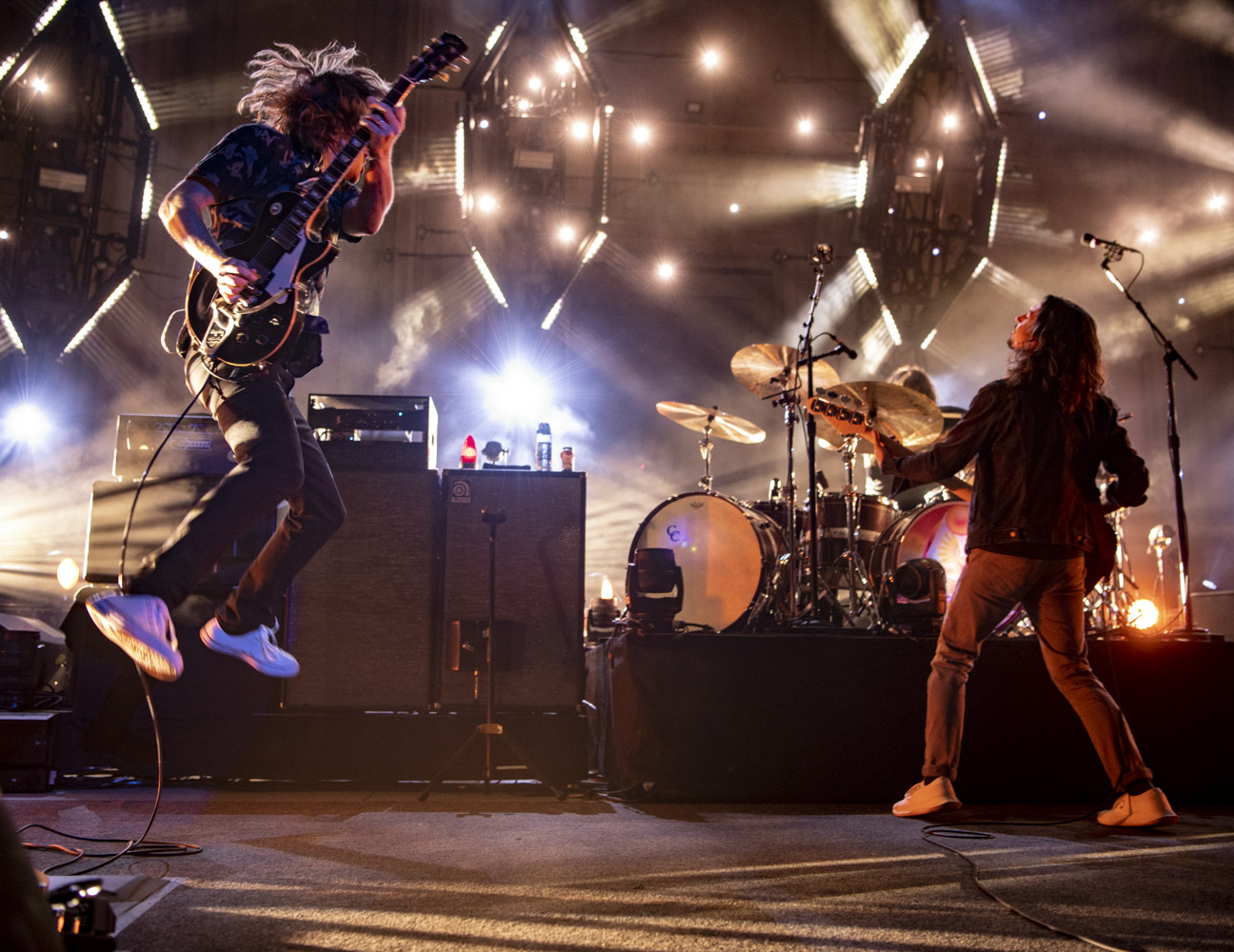
Photo by Jay Blakesberg
But when I do find something true, it feels special. My Morning Jacket isn't my favorite band, but they're a band that I respect and follow because to me there aren't many left worthy of that relationship. And it feels like MMJ are actual people, a realization exemplified by their COVID activities, time spent apart as the album was finished, and touring shut down. “Well, I did start another band,” Broemel says, which hadn't come up in my research. “I'm actually the coach of a band. It's my son, he's 12. He has a band with his friends. I [projected] my annoying rehearsal needs onto them. We practiced on the porch, had a show. And the kids are so funny, like their natural stage banter. They rose to the occasion, they started from basically not knowing how to play anything.
“For a while,” Broemel adds, switching gears, “everyone's stopped making records. But toward the end of last year, at the beginning of this year, people started hitting me up to do remote recording. I produced a few songs with this band called the Futurebirds from Athens.”
“It's almost like music is everywhere around us and I haven't found a way yet to understand it other than musicians picking up on it. We're all connected, and essentially we're all one. I feel like that's why music’s relatable.” — Jim James
MMJ has its side projects—familial and professional. Broemel and Koster played with Ray LaMontagne's touring band, while Koster went on the road with Roger Waters. James' Monsters of Folk recording with M. Ward and Bright Eyes’ Conor Oberst and Mike Mogis is an underappreciated watershed moment in the early-’00s folk-rock resurgence. How does a band linger in infidelities and return to one another, especially during a global pandemic that’s challenged our abilities to endure isolation? What do they bring back from that distance?
“I think it's really important to play with other people,” says Broemel. “It's like playing with the Futurebirds, watching those guys, the way they approach putting together a crazy three-guitar solo thing. I'm like, ‘This is amazing, you guys have great ideas.' I go out on tour and play with Ray LaMontagne, just listen to him. He's one of the greatest singers I've ever heard, insane. Every time he sings a take, it's perfect. When I hear it, I'm like, 'Jesus Christ.' There are so many people who are doing wonderful stuff and approach things differently. Every producer is different, and every band is different.”
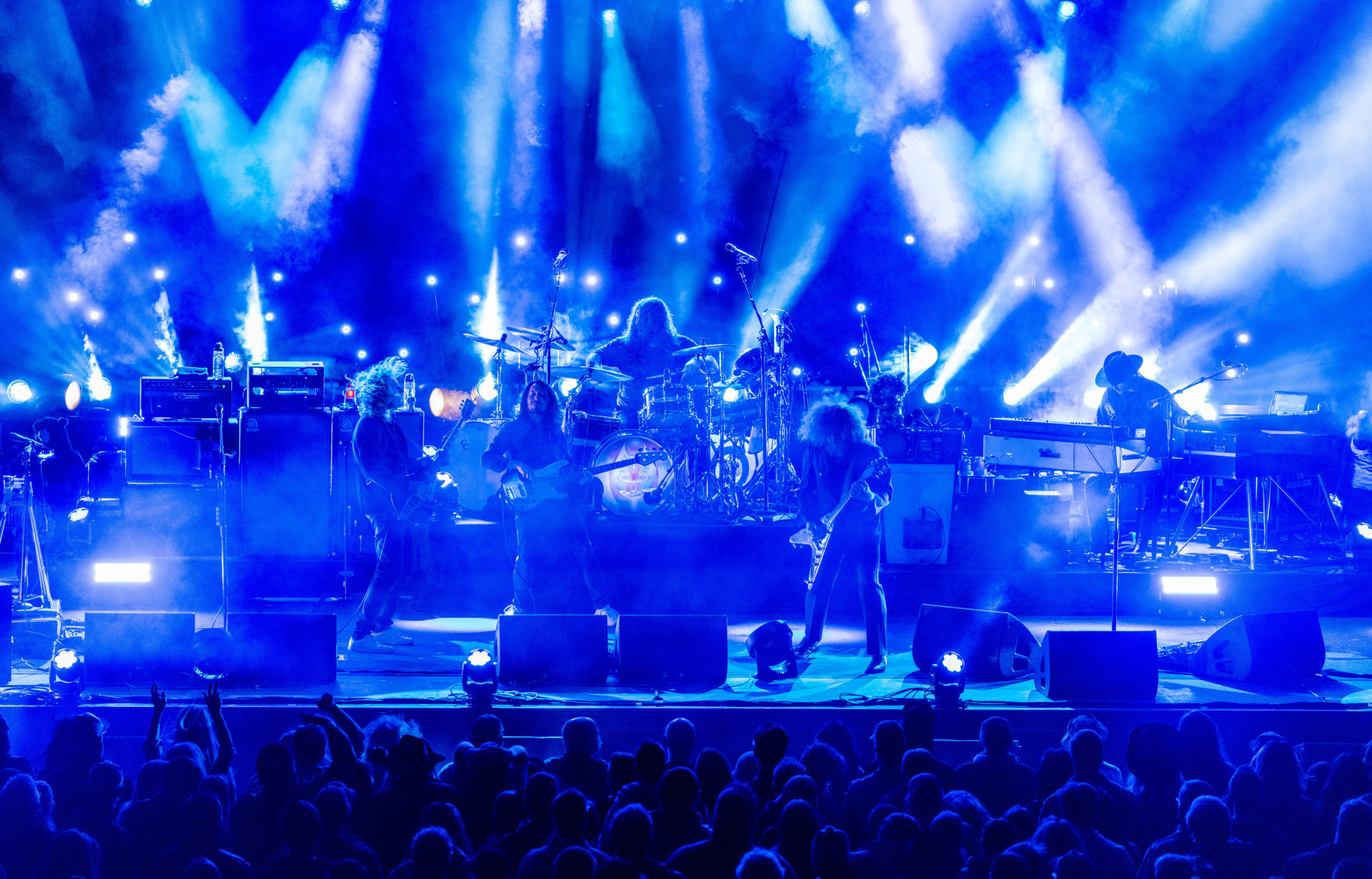
Photo bt Chris Mollere
But I'm not so sure. Is every band different anymore? Is this the last band not filtered through the ubiquitous lens of consumption and spectacle? Is My Morning Jacket the last band we can trust?

OK, maybe I got into some too-heavy shit there. Maybe I'm working out my own issues and My Morning Jacket is caught in the middle. Perhaps this is my hubris, my ego, my solipsistic tendencies. But Jim James is into heavy shit, too. “I mean the music, to me, is a really natural thing that happens,” he tells me. “I don't even know how to explain it. It's just such a part of life, it just kind of speaks—or it doesn't, you know what I mean? Sometimes it doesn't speak at all for months, but then sometimes it speaks and I just try to listen to it and help it. It's the leader, and I just kind of help it into this world so people can understand. It's almost like music is everywhere around us and I haven't found a way yet to understand it other than musicians picking up on it. We're all connected, and essentially we're all one. I feel like that's why music’s relatable.”
Like Zappa said, “Information is not knowledge. Knowledge is not wisdom. Wisdom is not truth. Truth is not beauty. Beauty is not love. Love is not music. Music is the best.”
And this album is an album, the band is a band, in the age of artifice and Spotify, where Rumors and Rust Never Sleeps, or even Nevermind and Yankee Hotel Foxtrot, are treasured relics of the time of liner notes and collections of songs that aspire to a collective thesis. MMJ feels like the last child, a rock and roll bastard living out its own mythology one album, one tour, one show, one solo, one encore at a time. We’re living in their narrative. We’re in the movie.
But will Ruckus ever play again? “Like a one-night reunion where we come on and play one or two songs,” Koster suggests.
“Doubt it,” says Broemel. “But someone needs to write us into another movie.”
Working on it, Carl. FL
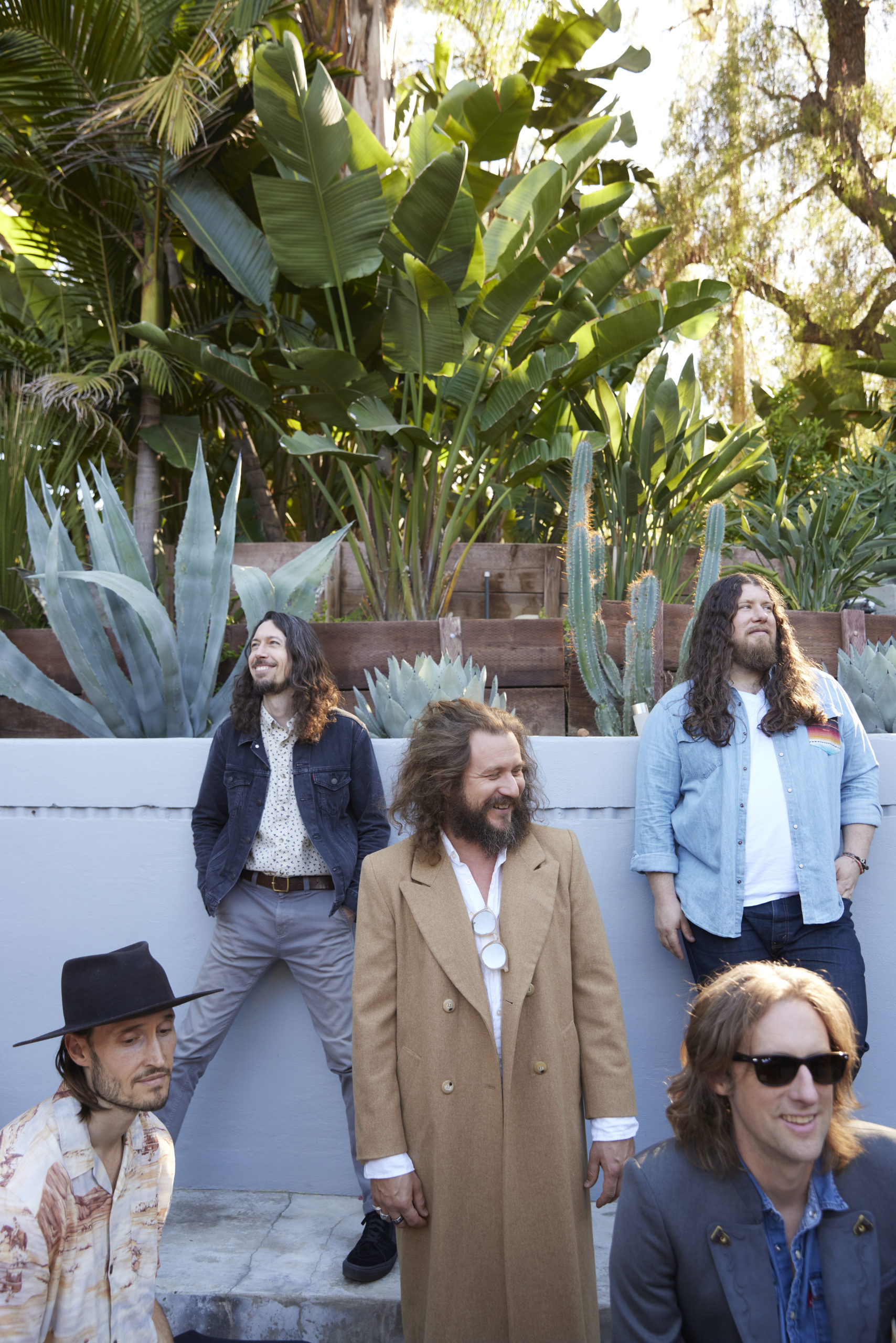
Photo by Austin Nelson

